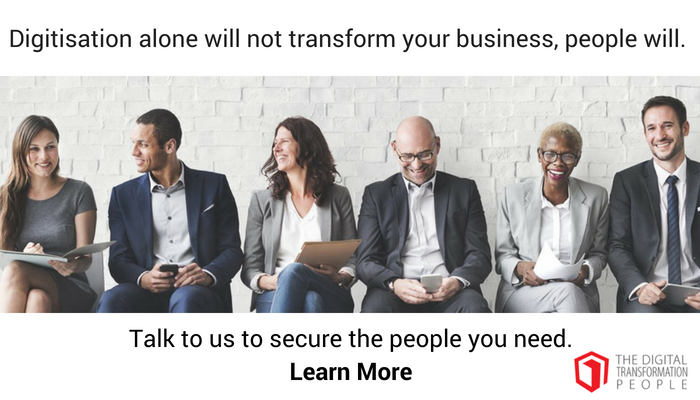Any day now, most business leaders along with the majority of their employees will be heading off on holiday. If that includes you, have you given a thought to whether your business will still be there when you get back?
You may think this is a bit extreme, but if the right disrupter arrives in your sector today by the end of the summer they could have taken most of your customers and you’ll be considering, not how to respond to the challenge, but how to close up.
Truly digital businesses move faster and are more efficient than any traditional business could ever be and because their ability to scale up isn’t limited by a need to staff up, their capacity is, theoretically at least, infinite.
Consider Alibaba. This is a business that only a few years ago Western managers were scoffing at as the poor man’s Amazon. Now in fact they are the world’s biggest retailer, but in fact, they aren’t strictly a digital original. The Alibaba we know today claims to have been established in 1999, but it’s adapted from a catalogue concept that, well before, was already established as the showcase for Chinese manufacturers looking to export globally. I remember sourcing product from China from their hefty, cheaply printed catalogue when I was in my first job.
Now look at them. https://www.linkedin.com/feed/update/urn:li:activity:6422383787614699521
Alibaba made it to where they are today by asking the simple question “If I was creating my business from scratch today using the resources that the digital world has to offer, what would it look like?” You should ask yourself the same question, because this is transformation.
Any business that still thinks transformation is a matter of digitising their existing business should take note. The story told in this video clip is what transformation is really about – rebuilding your business from the ground up leveraging technology to do things that hadn’t previously been possible. If you were starting your business today, this is how you should be thinking. It’s no use creating a traditional business that merely uses digital tools. It just won’t cut it. What’s more, in the fast-paced digital economy, once an idea has emerged it’s history, so Alibaba is the new starting point for any start-up business and it’s where every trad business needs to get to … and fast!
The impressive thing about this short video isn’t the technology, but the figures. In three months Alibaba reduced its headcount in this warehouse by 70% while continuing to grow at an eye-watering pace. What chance do traditional competitors have? None! In fact, if you are still pursuing a traditional business model, you aren’t really a competitor.
Combine this pace of transformation to the speed and accuracy of communication that a digital business has and it’s easy to see why, while you are sunning yourself on a beach somewhere your business could be evaporating.
There are two aspects to any digital business – infrastructure and mind-set. Most businesses could muster the investment to change to a digital model and build a new business with different structures and practices, products and services, but that only gives you the vehicle. To drive it you need a different mind-set and that’s harder to acquire. This is the main reason why transformation takes most businesses around three years – and that’s if they get it right first time, which between 70% and 90% of them don’t.
However, even then you are only on the starting blocks because the digital paradigm is one where change is constant. Apart from anything else, digital leaders are “adaptive managers”, the antithesis of traditional managers who were taught and have spent their entire working lives planning minutely, checking and double-checking before making a move. Work that way today and you see opportunities flash past …. or probably you won’t!
Sixty percent of UK businesses appreciate the need for transformation, but only 20% of them have a transformation plan and, as I said, at least 70% of those will fail, which is why at least 40% of the businesses we know today will disappear within the next few years. Because it takes around three years to make the basic changes necessary to survive the digital economy, you don’t need me to point out, if you haven’t got a plan already you shouldn’t expect to be in business three years from now.
There’s a clear process to successful transformation and it starts with creating your brand model. Brands are increasingly recognised as the key to successful transformation. They give you the focus you need to eliminate wasted expense and time, both precious commodities, and come into play, not only at every stage on your transformation programme, but in every business decision you make thereafter.
Brand-led business transformation uses your brand as the point of reference for everything you do moving forward. If your brand model is composed correctly you will be able to develop a clear identity, launch an internal marketing programme that will in turn drive the re-engineering of your business. Then and only then will you be ready to take the new you to market.
So, while you are staring at the sky over the next few weeks give some thought to how you will launch your transformation when you get back. What expertise will you need? Whose advice should you seek? What will be your approach to managing both the project and the large and complex team you will need to bring it to life? I’ll give you a clue to that one – the old fashioned waterfall project management approach won’t cut it.
There’s still time, in some sectors, to get a transformation over the line, but only if you approach the task correctly. Don’t be one of the 70% that fail. Start with you brand and move quickly and decisively to re-engineer your business.
Article by channel:
Everything you need to know about Digital Transformation
The best articles, news and events direct to your inbox
Read more articles tagged: Business Model, Featured, Strategy







